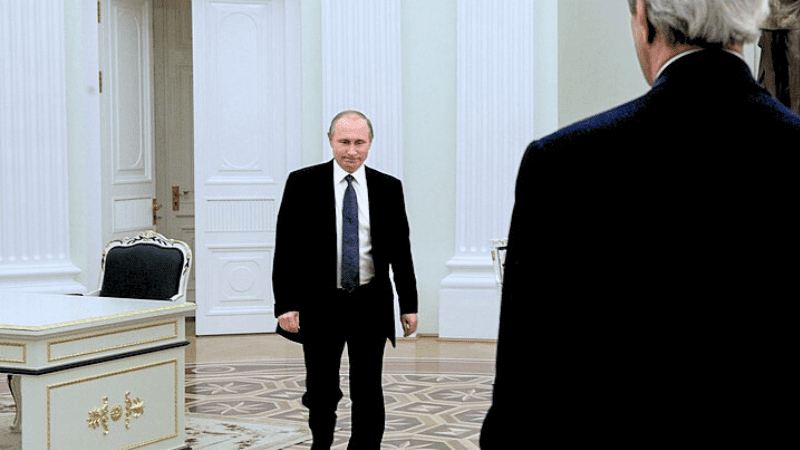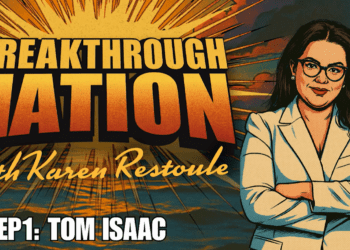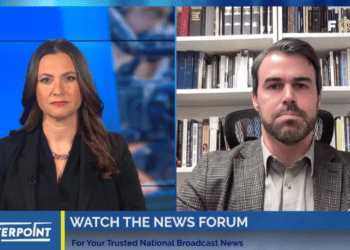By Aaron Gasch Burnett, February 27, 2024
Two years into Russia’s full-scale invasion of Ukraine, where is Canada? Where is the West in general in the most significant fight between democracy and authoritarianism since the Cold War?
The recent Munich Security Conference gave a clear answer to that – and it’s one that doesn’t flatter this country.
Estonia’s Prime Minister Kaja Kallas and Foreign Minister Margus Tsahkna were out in full force, publicly calling for the West to increase defence spending, back Ukrainian victory with whatever it takes, and seize some C$405 billion in Russian central bank assets that have been left frozen in western countries since the beginning of the war. These assets could then in turn be used to fund Ukrainian victory through buying more military kit, as well as help compensate Ukraine for the damage Russia has done to the country – currently estimated at more than C$656 billion.
Danish Prime Minister Mette Frederiksen spoke about why her country decided to send all its artillery to Ukraine, and castigated allies for not sending all the ammunition they could – at a time when Russia is outfiring Ukraine by a ratio of about 5-1.
Meanwhile, although Canadian Foreign Minister Mélanie Joly was in Munich, she was noticeably absent – in public at least – on the question of how Canada could boost its support for Ukraine, with her itinerary of public engagements focusing largely on other topics. And while it’s true that much of the significant developments that happen in Munich occur behind closed doors, Ukraine needs much more from Canada than backroom diplomacy right now.
The reason? This country still has a powerful card to play to help the Ukrainians – and it’s time to go all-in on it. It’s time for Canada to take a public and leading role in seizing Russia’s state assets and making Putin’s neo-imperialist state pay for its crimes.
Why should Canada aggressively push this particular file? The sad truth is that although we have a public that largely supports military support for Ukraine, we just don’t have that much kit to send. You can thank years of underinvestment in the Canadian military for that. Just last week, NATO Secretary-General Jens Stoltenberg pointedly asked Canada when we were going to hit our alliance obligation to spend at least 2 percent of our GDP on defence.
But Ukraine has a Canadian champion in Deputy Prime Minister Chrystia Freeland, whose finance ministry has taken an impressive lead ahead of other Western countries in already preparing a law for the seizure of private assets from Russian oligarchs, one that was also recently tweaked to allow Russia’s state assets to be confiscated and given to Ukraine.
Yet curiously, this law has yet to be applied. Canada hasn’t seized any frozen Russian assets laying in Canadian bank accounts. Furthermore, it’s made no discernable public effort to persuade more allies to follow suit. So, what’s the point in passing the law if you’re not actually going to do it?
Apart from Estonia’s urgent public plea to Western allies, most chatter on Russian asset seizure occurred in backroom meetings in Munich’s beer halls. During my conversations with supportive Europeans, they said they’re trying to convince their skeptical governments – notably Belgium, France, and Germany, which hold significant Russian frozen assets – that seizure is the right call.
A Canada that decided to go all-in on asset seizure would make the topic harder for bigger European countries to ignore. It remains a G7 member with a relatively large economy that still enjoys a great deal of credibility with European elites and is well-loved by everyday Europeans themselves.
Leading by example – why seizing Russian assets within Canada isn’t enough
To be clear, Canadian banks don’t have nearly as many frozen Russian assets as do European ones. That’s why seizing Russian assets in Canada helps to set the agenda more than anything else. It’s not nearly enough for the finance ministry to simply seize assets within Canada’s borders and call it a day – although that would be a start.
Rather, Global Affairs Canada and Canadian diplomats need the green light to make the most of Canadian legislation, helping to promote it as a model for European allies to take inspiration from in their own efforts to seize Russian assets.
“The debate over reparations and Russian assets is intensifying here,” says Sebastian Schäfer, Budget spokesperson for the Greens in the German Bundestag. Schäfer’s public call for Germany to draft a law to seize Russian assets reveals a big split within Germany’s political elite on seizure. While several of his fellow Greens are in favour, Green Foreign Minister Annalena Baerbock ruled it out at a recent EU summit. “When important partner countries of the Federal Republic lead the way, that helps us in the political debate – including with our own government,” Schäfer says.
Olena Halushka, co-founder of the International Centre for Ukrainian Victory – which has been campaigning for seizure for more than a year – says Canada seizing Russian assets now might actually encourage other Western nations to follow suit. “Many oppose confiscation because it would allegedly violate international law,” Halushka says. “Examples could prove that it’s legal.”
As 2022’s fraught debate in Germany over whether to send Ukraine Leopard tanks suggests – allied pressure on a reluctant Berlin can work. But it would require Canada’s capable diplomats to have a clear green light from the very top. Considering the foot-dragging from governments in France and Germany to seize Russia’s state assets, Canadian leadership on this issue would require us to put serious diplomatic and political capital on the table. That may sound like a big ask, but given the state of Canada’s military support to Ukraine – which has seen delays to even modest shipments of kit – leading by example on seizing Russian assets offers the best opportunity right now for Canada to make a decisive move to help Ukraine win.
Why is it so important for Canada to help #MakeRussiaPay?
At around C$405 billion, the sheer volume of Russian central bank assets currently frozen in Western banks can make an immediate difference to helping secure Ukrainian victory. That’s especially true at a time when aid for Ukraine remains tied up in the United States Congress and the Europeans simply cannot immediately step in to fill the gap.
Furthermore, Putin’s Russia is extremely unlikely to pay the reparations it owes Ukraine, and damages already dwarf the amount of assets we’re able to seize. Confiscating Russian state assets may be the only shot we get at ensuring Ukraine gets at least some justice and compensation.
“What’s at stake now is whether this money is going to just sit in accounts or save Ukrainian lives,” Halushka says.
Žygimantas Pavilionis, chair of the Lithuanian parliament’s foreign affairs committee, agrees. “Making Russia pay is the bare minimum we have to do to defend the rules-based order,” Pavilionis says. “We have a new Axis of Evil that is copying Russia’s behaviour elsewhere in the world. We can stop this evil – but we have to take all the necessary measures, and our window of opportunity is closing fast.”
Lastly, at a time when Western leaders must continue to make the case for why spending taxpayer money to support Ukraine remains in our interest, it’s frankly disrespectful to those taxpayers to leave Russian money on the table. We must continue to support Ukraine with our tax money for whatever victory takes, but the aggressor must pay too.
Aaron Gasch Burnett is a German-Canadian journalist and security analyst based in Berlin. He is the co-host of the BerlinsideOut podcast on German foreign policy.






